His parents used to teach in the same school in Chechnya. His dad was a Chechen, Andarbek Dudaev, his mom a Russian, Zoya Surkova. He spent his childhood in his dad's village where he was known as Aslanbek Dudaev. But then his parents divorced and mom took him to Russia proper 

After school he served in army, in military intelligence. Then Perestroika started and commerce was allowed. In 1987 he started working as a marketing deputy for the future oligarch Khodorkovsky - who'll soon become the richest man in Russia. You see Surkov, Nevzlin, Khodorkovsky 
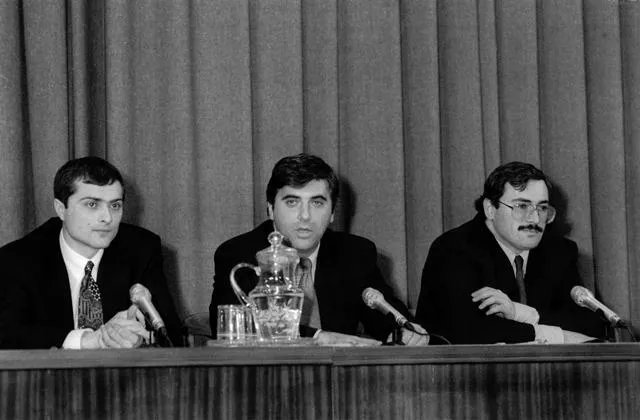
What was Khodorkovsky doing back then? This story shows the origins of many largest oligarchic fortunes in Russia. Khodorkovsky was the head of local НТТМ - office for scientific and technological initiatives of the youth. A department of Komsomol - Committee for the Soviet youth 

Until Perestroika positions in these НТТМ centres were not that lucrative. But then everything changed. To understand why, we should do a little trip into the Soviet monetary system and how did the Soviet money function
In 1929-1932 Stalin imposed total control over the economy. All enterprises were state enterprises now. And yet, money didn't disappear. Instead Stalin built a new monetary model. In the old, traditional one, there was one circular flow of money. Stalin made two separate flows 

The first one was the cash flow. Cash was used by state to pay wages to ppl and by ppl to buy stuff from state. Second flow was noncash. This money was used to do transactions between government enterprises and agencies. Cashing out noncash money was absolutely prohibited
Why would Stalin do that? Largely to pump money into the industry without triggering hyperinflation. Government created as much money as necessary for construction + subsidies, but made sure it won't be used by regular people for buying stuff. Hence prohibition for cashing out 

Prices on retail market were arbitrary. E.g. public transport was super cheap, much cheaper than it costed to the state. Meanwhile cars were super expensive, the state selling them with at least 200-300% profit margin. State earned money selling cars and paid for public transit 

And yet, within the noncash flow prices were way more arbitrary. They didn't reflect market reality, cuz there was no market. E.g. textile and aerospace industry production was valued in noncash roubles. But actual costs of the latter could be 1000 times as high as of the former 
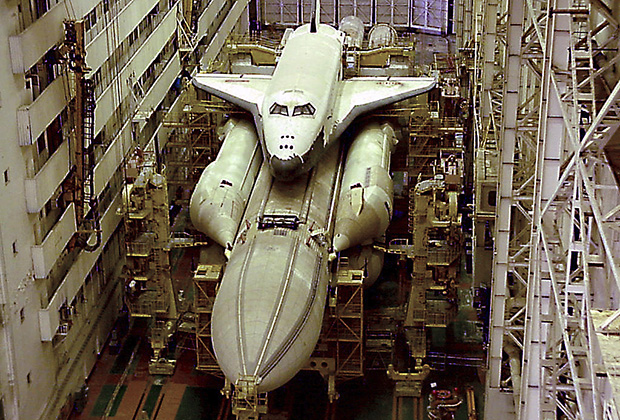
The system was functional as long as the strict prohibition to cash out noncash money remained, and two flows didn't mix. And yet, in late 1980s some agencies got the right to cash them out. Most importantly these НТТМ branches of the Komsomol - committee of the Soviet youth 

What did they do? Of course, they started cashing out as much of the noncash money as they could. That triggered hyperinflation, destroying the frailing Soviet economy, but created some enormous fortunes. Such as the one of Khodorkovsky - the future richest oligarch in Russia 
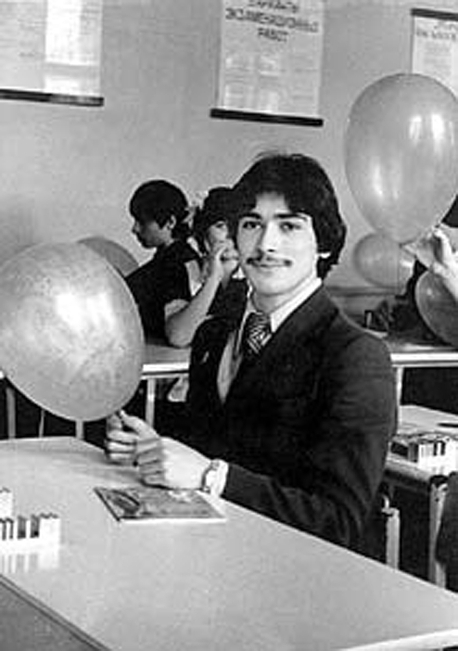
This shows why the НТТМ leaders were so overrepresented among the richest people in Russia. They used the crony opportunities Komsomol gave them and cashed out lavishly. Moreover, it shows why former Komsomol leaders are so overrepresented among the contemporary Russian elites 

Soviet propaganda portrayed Komsomol as idealistic youth faithful to the Leninism. This was often true in 1920-1960s. However, by the 1980s true believers were selected out. New leadership consisted of incredibly cynical and opportunistic folk - such as Khodorkovsky or Matvienko 

Upward mobility within the adult Party was difficult by that time. Frailing gerontocracy occupied all the positions of power and refused to go. So these young smart and cynical ppl waited for their chance, and they exploited the collapse of Soviet system better than anyone else 

Let me quote Dorenko:
"We'll live for 130 years. My kids and grandkids will live in my shadow. Only my great-great-grandchildren will see the sky. We'll fuck everyone. Why us? Cuz we've plundered the country. We killed, slandered our fathers. That's why our generation is unique"
"We'll live for 130 years. My kids and grandkids will live in my shadow. Only my great-great-grandchildren will see the sky. We'll fuck everyone. Why us? Cuz we've plundered the country. We killed, slandered our fathers. That's why our generation is unique"

So Surkov started working for a crony Komsomol official Khodorkovsky. Khodorkovsky's star was rising and Surkov's too. Soon he was leading the PR service for the richest oligarch in Russia 

But Surkov was too smart too put al legs into one basket. While working for Khodorkovsky he also consulted the government as PR expert. And when Voloshin, one of the closest members of Yeltsin's 'family' leads his administration, Surkov becomes his deputy, leaving his former boss 

Thus he became Kremlin's deputy managing PR, political technologies and domestic policy. His most important task was "drowning" Primakov and advancing new Yeltsin's successor - Putin. Putin had full support of the Kremlin, but was totally unknown. You needed to make him electable 

But Primakov was still very powerful. Russia had 89 governors and 84 joined Primakov's party. And governors used to have *a lot* of power back then, especially leaders of major cities like Moscow and St Petersburg. Meanwhile the unknown party of Putin "Unity" had zero governors 
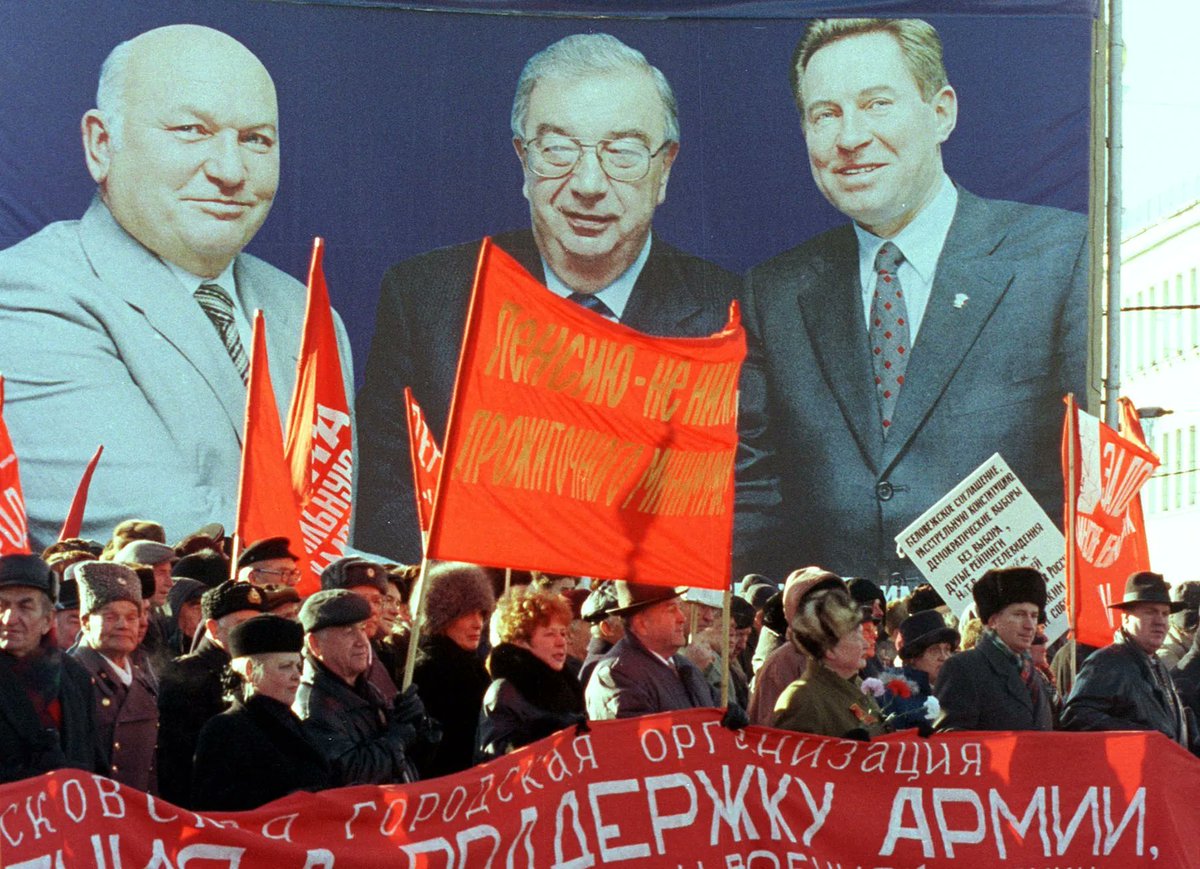
So in early 1999 nearly 100% of political establishment supported Primakov, seeing him as an obvious successor. Those who didn't were usually outcasts whom he didn't accept in his party for this or that reason. And yet, Kremlin did everything they could to prevent Primakov's rise 

Surkov personally talked with governors and persuaded 39 of them to join Putin. So now Putin had 39 and Primakov only 45. How did Surkov do this? Through blackmailing: by that point Putin had dossiers on all of them. Surkov also made clear that Kremlin won't allow Primakov to win 
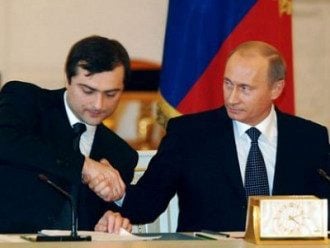
Surkov also did fund-raising. Berezovsky and Abramovich were the two biggest donors for the Putin's campaign, but there were many others, too. On average businessmen would donate just 10 million dollars each - more like insurance in case Putin wins 

PS I made a factual mistake in the last thread - misidentifying Surkov on the initial photo. Thus I deleted it. Will post a corrected version a bit later as a blogpost
• • •
Missing some Tweet in this thread? You can try to
force a refresh





